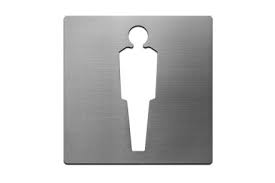 Our very own Shira Tarrant (curator of “The Man Files” here at GWP) is on the advisory committee for this one, as is Michael Kimmel, whose work I utterly admire. So I totally wanted to share:
Our very own Shira Tarrant (curator of “The Man Files” here at GWP) is on the advisory committee for this one, as is Michael Kimmel, whose work I utterly admire. So I totally wanted to share:
Call for Presentations
THE 1st NATIONAL CONFERENCE FOR
CAMPUS-BASED MEN’S GENDER EQUALITY & ANTI-VIOLENCE GROUPS
November 6-7, 2009 / St. John’s University in Collegeville, Minnesota
What it is: Across the country, groups of male students are making their voices heard! More and more men are finding the courage to say “no†to ideas of manhood and relations between the sexes that aren’t good for women and aren’t good for men as well. They’re speaking out against date rape and violence against women. They support gender equality. Some work through residence life or student activities offices, others through women’s centers and counseling programs. Some are campus branches of national organizations like MVP, White Ribbon, Men Can Stop Rape, 1 in 4, or V-Men.   These men face common problems: How to have an impact? How to find positive ways to get their message to other campus men? How to deal with backlash, to work in partnership with women’s groups, to recruit and sustain their groups? For the first time, campus-based pro-feminist men’s groups from across the country are meeting together. To share resources., trade their best ideas, discuss strategies, and simply find out what’s happening on other campuses.
For more details, including on costs and the members of the organizing & advisory committees, visit: www.michaelkaufman.com/campusmensconference

 Today being the day our monthly
Today being the day our monthly  My latest
My latest  Did you hear the one about how testosterone is to blame for the meltdown? Pretty good stuff, eh? The headline reads:
Did you hear the one about how testosterone is to blame for the meltdown? Pretty good stuff, eh? The headline reads:  A new
A new  Naked women. What’s not to love, right?
Naked women. What’s not to love, right? I’ve got the cover story over at
I’ve got the cover story over at 
